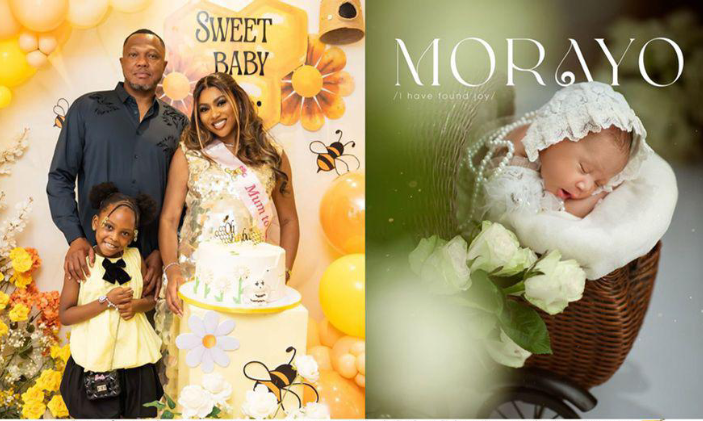
“My First Heartbreak Turned Me Into Someone I Didn't Recognize” — Ruger Opens Up About Emotional Scars and Toxic Behavior

In a moment of rare vulnerability, Nigerian singer Ruger has peeled back the layers of his public persona to reveal a deeply personal struggle that changed the course of his life — and his music. Known for his confident lyrics and signature eye patch, the Afro-dancehall star stunned fans this week with a candid revelation: his first heartbreak left him traumatised, and the emotional aftermath turned him into someone he could barely recognize — toxic, guarded, and emotionally unavailable.
Speaking during a recent interview, the “Asiwaju” crooner didn't hold back as he recounted how a youthful romance shattered his sense of self and sent him spiraling into an unhealthy emotional space. “That first heartbreak hit me harder than I ever imagined,” he admitted. “It was my first time truly falling for someone, and when it ended, I didn’t know how to handle it. I thought I was fine, but I became someone else entirely.”
Ruger’s confession is striking not only for its honesty but also for its relatability. In a music industry that often champions masculinity through emotional detachment and bravado, especially among male artists, hearing a male superstar openly admit to being deeply affected by heartbreak offers a refreshing change. But Ruger’s journey didn’t end with just sadness; it took a darker turn — one that impacted his relationships, his behavior, and his worldview.
“I became toxic,” he said bluntly, his voice laced with a mix of regret and self-awareness. “I was projecting my pain on others. I was dismissive, distrustful, and cold. I didn’t even realize it at first — I thought I was just being careful. But in reality, I was shutting people out, pushing away love, and hurting people who didn’t deserve it.”
The revelation paints a different picture of the chart-topping artist fans have come to admire for his upbeat hits and confident stage presence. Beneath the energy of his performances lies a young man still navigating the emotional wreckage of a love that once meant everything to him. According to Ruger, the trauma from that early relationship ran deep, leaving scars that took time and reflection to understand.
“I had to look in the mirror and be honest with myself,” he explained. “The pain didn’t justify how I was treating others. I wasn’t healing — I was just building walls and pretending to be okay.”
This deeply personal account has sparked a wave of reactions on social media, with many fans commending Ruger for his courage and emotional transparency. “It’s not easy for a man to admit that he was broken by love, and even harder to admit he became toxic as a result,” one fan tweeted. “Ruger just earned my respect in a whole new way.”
Others shared their own experiences, creating a spontaneous online forum for people — especially young men — to talk about the emotional toll of heartbreak and how it can distort one’s behavior and perception of love. The singer’s words have not only resonated with fans but have also opened up broader conversations around emotional accountability and the hidden battles many people face behind closed doors.
Ruger, whose real name is Michael Adebayo Olayinka, shot into the limelight with his debut single “Ruger” under Jonzing World in 2021. Since then, he has built a reputation for catchy hooks, daring lyrics, and a rebellious image. But behind the scenes, the singer admits that his emotional journey has been anything but smooth. “People see the fame, the music, the lifestyle — but they don’t see the nights you lie awake, questioning yourself, wondering what went wrong and why it still hurts,” he said.
While the heartbreak that triggered his emotional spiral happened years ago, Ruger says the experience taught him valuable lessons about love, vulnerability, and the importance of healing. “At some point, I had to choose whether to keep carrying that pain or start letting it go,” he noted. “It took time, real conversations, therapy, prayer, and being honest with myself. But I didn’t want to keep hurting people because of what someone else did to me.”
His journey toward healing is also reflected in his music. While earlier songs like “Bounce” exude confidence and flirtation, more recent tracks reveal a deeper emotional complexity. Fans have noticed that beneath the bravado, there are lyrics laced with introspection and hints of emotional wounds. According to Ruger, music has become both a refuge and a release — a way to process pain, celebrate growth, and speak truths that are often too difficult to say out loud.
“I write about what I feel. Sometimes it’s fun, sometimes it’s pain. But it’s all real,” he said. “Music is where I go to be free.”
In a time when toxic masculinity often discourages emotional openness, Ruger’s story serves as a powerful reminder that vulnerability is not weakness — it is strength. His confession is more than just a celebrity anecdote; it’s a mirror for many young people who have faced the storm of heartbreak and come out scarred, changed, and uncertain of how to move forward.
“I’m still learning, still growing,” Ruger concluded. “But I now understand that love isn’t the enemy. Pain isn’t the enemy. It’s how we deal with it that makes all the difference. I don’t want to be toxic anymore. I want to be better — for myself, and for the people who care about me.”
His words have struck a chord not just because of who he is, but because they echo the silent battles so many face — battles with hurt, trust, and identity. In owning his past, Ruger may have just offered a path to healing not just for himself, but for countless others walking the same road.


